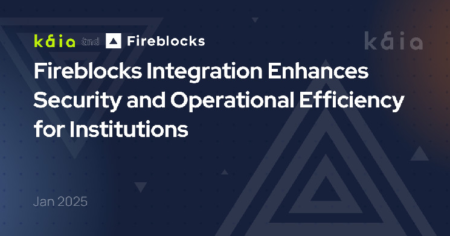Summarize this content to 2000 words SEO optimized article with 6 paragraphs in English
Egypt has unfurled plans to increase the size of its bet on emerging technologies as it eyes regional supremacy in artificial intelligence (AI) and IT sectors.
According to a report by Egypt Today, high-ranking officials presented a blueprint to President Abdel Fattah El-Sisi on the actionable steps to be taken to achieve national targets. Communications Minister Amr Talaat led the presentations focusing on the outsourcing industry and seeking the integration of next-gen technologies.
Talaat centered his submission on the need to revolutionize the communications sector to improve the national digitization drive. For the Minister, an overhaul of the current internet infrastructure to meet world-class standards will see Egypt leapfrog its peers in the Middle East.
Prime Minister Mostafa Madbouly reiterated Talaat’s claims, adding that concrete steps should be taken to achieve the ambitious targets in the coming months. Madbouly makes a case for local and international investments in Egypt’s communications sector, but the government will have to improve its ease of doing business metrics.
Both ministers presented a second version of the National Strategy for Artificial Intelligence, which is expected to come into operation in the coming months. Building on the first iteration, the latest policy document focuses on the real-world application of AI products to improve the local economy while protecting citizens from potential abuse.
President Sisi ordered the continuation of a national education drive to deepen the talent pool for Egyptian firms seeking AI and Web3 experts to power the integration efforts.
Experts are anticipating the announcement of national support programs for local enterprises building solutions around AI, data protection, blockchain, and cybersecurity. The most ambitious of the pundits are predicting the launch of “specialized international centers” in Egypt designed to power the “research and development” of emerging technologies in the country.
Blockchain goes on a searing trajectory
A cross-section of investors in Egypt are turning to virtual assets to hedge their wealth, with retail and institutional players demonstrating bullishness. While the Middle East continues to rank high in digital asset adoption metrics, Egypt is contributing its fair share, ranking in 14th place in 2023.
The Central Bank of Egypt (CBE), keen to cash in on the action, has confirmed plans to roll out a central bank digital currency (CBDC) to improve the state of payments. Top on the agenda for the banking regulator is a push to advance financial inclusion metrics with an eye on cross-border use cases.
Mizuho Securities deepens reach in STOs with renewable energy
After dabbling with security tokens (STOs), Japanese-based Mizuho Securities (NASDAQ: MZHOF) has announced a new offering revolving around renewable energy for the local market.
According to an announcement, Mizuho Securities partnered with Blue Sky Solar, a first-of-its-kind arrangement designed to raise funds for the renewable energy company. Traditionally, STOs in Japan orbit real estate tokens, with the most ambitious testing the waters with digital bonds.
Mizuho’s latest experiment is tokenizing infrastructure private placement funds. The move will see the ownership and investment interest of Blue Sky Solar converted into tradeable digital tokens for investors.
Despite the novelty of the offerings, the issuance will have to comply with existing Japanese security laws with clear rights and obligations rolled out for token holders. At the core of the issuance is a reliance on blockchain with smart contracts and other on-chain tools deployed for efficiency.
Mizuho’s decision to partner with Blue Sky follows a streak of success for the renewable energy firm. In 2024, Blue Sky added eight solar power facilities to its growing networks, bringing its output to 9.5 MW, capable of powering nearly 10,000 homes.
A bird’s eye view indicates that Blue Sky’s parent company has since completed over 370 renewable energy projects with an output of 318 MW.
The issuance will see Blue Sky Asset Management control the assets of Blue Sky Solar, a move designed to comply with local regulatory obligations. Other perks to be gleaned by involving related entities in the STO issuance include a clear ownership structure and risk management practices.
Mizuho will operate as an underwriter for the issuance while bringing its experience with blockchain for seamless operation. The issuance will lean on iBet for Fin by BOOSTRY, a distributed ledger with an impressive track record in the STO space.
An impressive streak
Mizuho has extended its footprints in the local STO ecosystem in Japan, partnering with other pioneers in the space. The financial powerhouse previously partnered with Mitsubishi UFJ Financial Group’s (MUFG) (NASDAQ: MBFJF) stablecoin issuance platform, setting the foundations for its future activities in the ecosystem.
Outside of STOs, Mizuho is forging ahead with a blockchain-based digital identity solution in partnership with Sumitomo Mitsui (NASDAQ: SMFNF) and MUFG. Other regional banks have been tapped to join the fray as Mizuho eyes improving its efficiency and productivity via emerging technologies.
Watch: Blockchain is much more than digital assets
title=”YouTube video player” frameborder=”0″ allow=”accelerometer; autoplay; clipboard-write; encrypted-media; gyroscope; picture-in-picture; web-share” referrerpolicy=”strict-origin-when-cross-origin” allowfullscreen=””>
Tagged:
Abdel Fattah El-SisiAIAmr TalaatArtificial IntelligenceBlue Sky SolarEgyptJapanMiddle EastMizuhoMostafa MadboulyRegulationRenewable EnergySecurity TokensTokenization



















